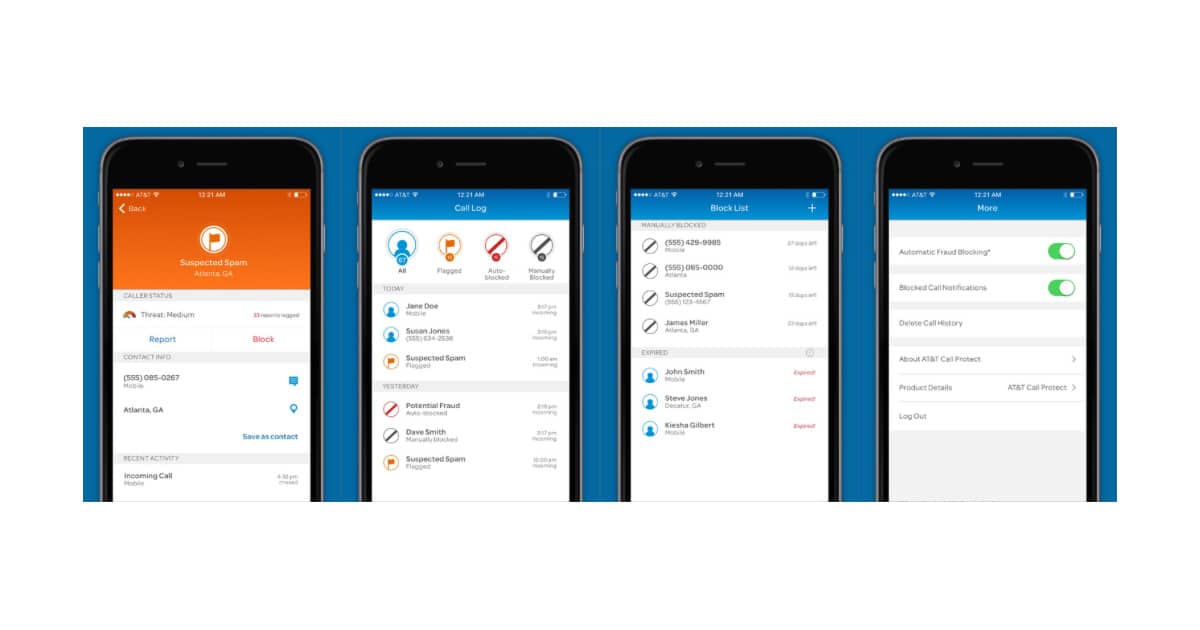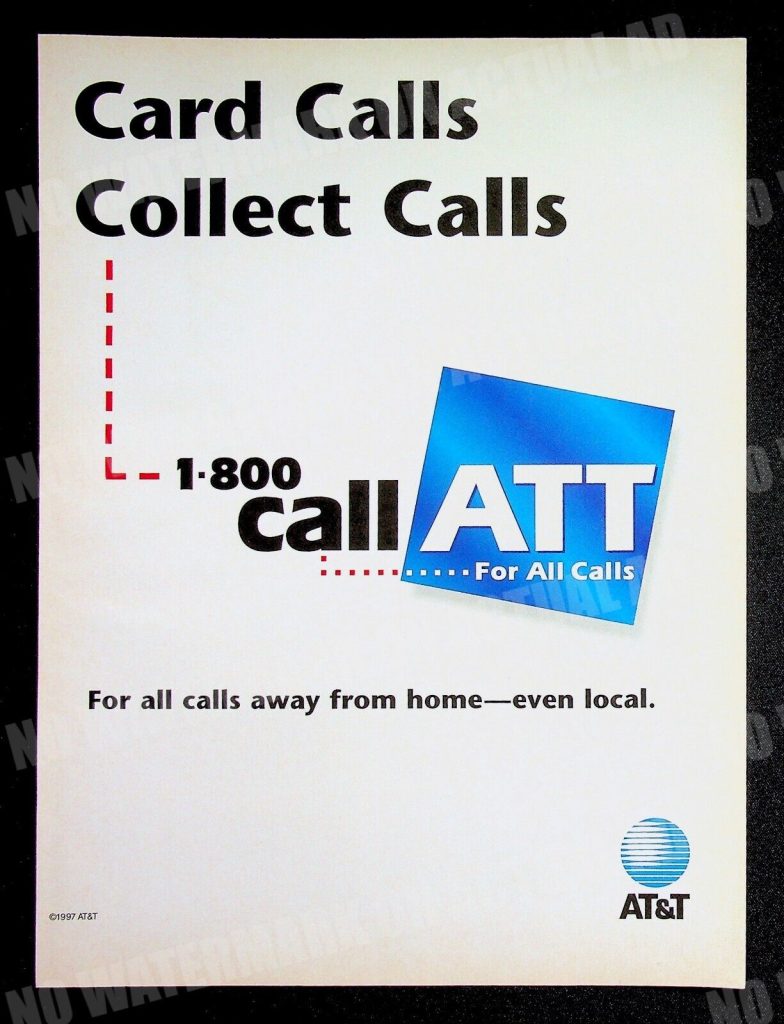Calling AT&T for customer support can sometimes feel overwhelming, especially if you're unsure about the process or what to expect. Whether you're troubleshooting a technical issue, inquiring about your bill, or seeking assistance with service upgrades, this guide will walk you through every step to ensure a smooth experience. Our goal is to empower you with the knowledge and tools you need to make that call confidently and efficiently.
With a vast array of services and millions of customers, AT&T's customer support system is designed to cater to diverse needs. However, navigating the phone system or finding the right department can be challenging without proper guidance. This article is crafted to simplify the process by offering expert advice, insider tips, and practical steps to make your interaction with AT&T seamless.
Whether you're a new subscriber or a long-term customer, understanding how to effectively "call att&t" can save you time and frustration. By the end of this guide, you'll be well-equipped to handle any situation, from setting up your account to resolving billing discrepancies. Let's dive in and explore the essential details you need to know.
Read also:Boost Your Communication Exploring The Comprehensive Dish Network Phone Service
Why Should You Call AT&T for Customer Support?
AT&T is one of the largest telecommunications companies in the world, providing a wide range of services including mobile phone plans, home internet, TV, and more. When you encounter issues with your service, calling their customer support is often the most direct way to get help. Below are some reasons why reaching out to AT&T via phone can be beneficial:
- Immediate Assistance: Phone support allows you to speak directly with a representative who can address your concerns in real-time.
- Personalized Solutions: Unlike online chatbots, human agents can tailor their responses to your specific needs.
- Comprehensive Support: From billing inquiries to technical troubleshooting, AT&T representatives are trained to handle a variety of issues.
While self-service options like online portals and mobile apps are convenient, there are situations where a live conversation is necessary. For instance, if you're dealing with a complex issue or need detailed explanations, calling AT&T is often the best course of action.
How to Prepare Before You Call AT&T?
Before dialing AT&T's customer support number, it's important to gather all the necessary information to ensure a productive conversation. This preparation can significantly reduce the time spent on the call and increase the likelihood of resolving your issue promptly. Here's what you should have ready:
- Your AT&T account number or the phone number associated with your account.
- A copy of your recent bill or statement, if the issue is billing-related.
- Any error messages or codes you've encountered while using AT&T services.
- A list of questions or concerns you want to discuss during the call.
Additionally, choose a quiet environment where you can focus on the conversation without distractions. If possible, use a landline or a stable mobile connection to avoid call drops or poor audio quality.
What Are the Different Numbers to Call AT&T?
AT&T offers several phone numbers depending on the type of service you're using and the nature of your inquiry. Below is a breakdown of the most commonly used numbers:
- General Customer Support: 1-800-288-2020
- Wireless Support: 1-800-331-0500
- U-verse TV and Internet: 1-855-226-3321
- International Support: Check AT&T's official website for country-specific numbers.
It's crucial to use the correct number for your specific issue to avoid being transferred multiple times. For example, if you're experiencing problems with your home internet, calling the wireless support line may not yield the desired results.
Read also:Danburys Unveiling The Hidden Gems Of A Thriving Community
What Should You Expect When You Call AT&T?
Understanding the typical call flow can help you manage your expectations and prepare accordingly. Once you dial the number, you'll likely encounter an automated system that guides you through a series of options. Be patient and follow the prompts carefully to reach the appropriate department. Here's what to expect:
- Initial Greeting: A pre-recorded message will welcome you and provide options based on your inquiry.
- Verification Process: You'll be asked to verify your identity using your account information or the last four digits of your Social Security number.
- Wait Time: Depending on the volume of calls, you may experience a wait time before speaking to a live agent. Use this time to review your notes and prepare your questions.
- Live Agent Interaction: Once connected, clearly state your issue and provide any relevant details to expedite the resolution process.
Remember, staying calm and polite during the conversation can improve the outcome. Representatives are more likely to assist you effectively if you maintain a positive attitude.
Can You Avoid Long Wait Times When You Call AT&T?
Long wait times are one of the most common complaints when calling customer support services. However, there are strategies you can employ to minimize delays and optimize your experience:
- Choose Off-Peak Hours: Avoid calling during peak business hours when call volumes are highest. Early mornings or late evenings tend to have shorter wait times.
- Use Priority Support Options: If you're an AT&T Premier customer, you may have access to priority support lines that offer faster service.
- Opt for Chat Support: In some cases, initiating a chat session through the AT&T website or app can be quicker than waiting on hold.
While these tips can help, it's important to remain flexible and patient, as unexpected circumstances can affect wait times.
How Can You Escalate Your Issue If Needed?
If your initial call to AT&T doesn't resolve your issue, you may need to escalate the matter to a higher authority. Here's how you can do that:
- Request a Supervisor: Politely ask to speak with a supervisor or manager if the representative is unable to assist you.
- Document Your Conversations: Keep a record of all interactions, including dates, times, and the names of representatives you speak with.
- Contact AT&T via Other Channels: If phone support proves ineffective, consider reaching out via email, social media, or the AT&T Resolution Center for further assistance.
Escalation should only be used as a last resort after exhausting all other options. Always maintain professionalism and clarity when explaining your situation.
What Are the Common Issues People Face When They Call AT&T?
While AT&T strives to provide exceptional customer service, there are certain challenges that users frequently encounter. Understanding these issues can help you anticipate potential problems and prepare accordingly:
- Technical Difficulties: Connectivity issues, device malfunctions, or service outages.
- Billing Discrepancies: Unexplained charges, billing errors, or discrepancies in statements.
- Service Changes: Difficulty upgrading or downgrading plans, adding new services, or modifying existing ones.
By familiarizing yourself with these common issues, you can better articulate your concerns and work collaboratively with AT&T representatives to find solutions.
How Can You Improve Your Experience When You Call AT&T?
Enhancing your experience when calling AT&T involves a combination of preparation, communication, and follow-up. Here are some actionable tips to make the most of your interaction:
- Be Clear and Concise: Clearly state your issue at the outset and avoid unnecessary details that may confuse the representative.
- Stay Calm and Polite: Maintaining a respectful tone can lead to faster and more effective resolutions.
- Follow Up on Promises: If a representative promises to resolve an issue or send documentation, follow up within a reasonable timeframe to ensure it's completed.
Implementing these strategies can transform a potentially frustrating experience into a productive and satisfying one.
Why Is It Important to Trust the Process When You Call AT&T?
Trust is a critical component of any customer-service interaction. When you call AT&T, it's important to trust that their representatives are trained to handle your concerns effectively. While occasional hiccups may occur, approaching the situation with confidence and patience can lead to better outcomes. Here's why trust matters:
- Expertise: AT&T representatives undergo rigorous training to address a wide range of issues.
- Accountability: The company has systems in place to ensure customer satisfaction and resolve disputes fairly.
- Continuous Improvement: Feedback from customers helps AT&T refine its processes and enhance service quality.
By trusting the process and collaborating with AT&T's support team, you increase the chances of achieving a favorable resolution.
Conclusion: Making the Most of Your Call to AT&T
Calling AT&T doesn't have to be a daunting task. With the right preparation, mindset, and strategies, you can navigate the process smoothly and achieve the results you desire. Whether you're troubleshooting a technical issue, seeking clarification on your bill, or exploring new service options, this guide equips you with the knowledge and tools to make every call count. Remember, effective communication and trust are key to a successful interaction. So, the next time you need to "call att&t," approach it with confidence and clarity.
Table of Contents
- Why Should You Call AT&T for Customer Support?
- How to Prepare Before You Call AT&T?
- What Are the Different Numbers to Call AT&T?
- What Should You Expect When You Call AT&T?
- Can You Avoid Long Wait Times When You Call AT&T?
- How Can You Escalate Your Issue If Needed?
- What Are the Common Issues People Face When They Call AT&T?
- How Can You Improve Your Experience When You Call AT&T?
- Why Is It Important to Trust the Process When You Call AT&T?
- Conclusion: Making the Most of Your Call to AT&T


